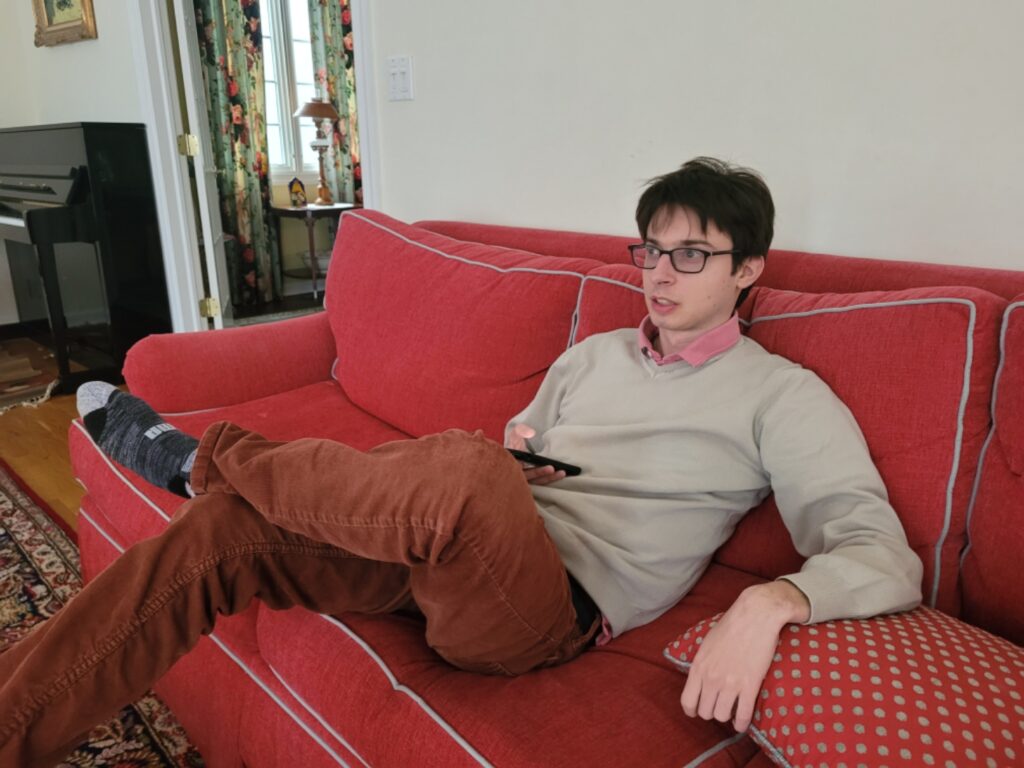
Winter is treadmill running season for me, and given my nerdy, guilt-driven personality, I can’t just watch Netflix series for entertainment. I also must watch educational type content -you know, documentaries and such- to justify the just-for-escapism screen time. Lately, I’ve alternated 45-minute-long episodes of the soapy series Firefly Lane with 20-minute-long episodes of the documentary series Explained. Though the time allocation is unequal, the offset is optimal.
There’s only so much effort my brain can exert while I’m running on a treadmill, and the mental work of focusing on an Explained episode is decidedly more intense than that of following Firefly Lane’s unlikely plot line.
Another reason I can’t watch documentaries the whole time I’m running is that I feel compelled to jot down the stuff I find noteworthy in some way. At the same time, I would like to keep to my running plan, dammit, and not stop at random points. There being a time limit to what my brain can retain, I need to decide whether to let the epiphany dissipate or stick to my run goal. I generally choose the former.
So it was that during one 6.2-mile run, I was watching the Explained episode on Dogs and heard the following:
“That ancient selection process that made dogs friendlier and cuter coded an openness for love into their DNA. And that’s their superpower.”
Aha! thought I, here’s a perfect opportunity to share, in a way that’s not off-putting, that I think of my developmentally disabled son Diego a bit like dog people feel about their dogs. These lines validate, in a good way, the association I make between dogs and Diego whenever I hear people rave about their pets. I’ve never had a dog, nor do I ever want to have one, but dog owners always describe their affection as unjudging and steadfast.
Diego’s openness for love is also his superpower.
It’s not that Diego’s less than human, it’s that he’s super-human when it comes to his ability to receive and give love that is pure and unconditional.
Discussing how dogs assist humans with tasks like sniffing out drugs or locating survivors trapped under rubble, an expert on Explained noted:
“You can train rats to do the exact same work. That can be done, has been done. But when you actually want people to use those animals to go out and find explosives, find drugs, the dog is just a thousand times easier to work with ‘cause the dog really wants to be there helping you.”
Diego, too, really wants to be there helping you.
There’s great value in this, not the kind that’s monetarily rewardable, but the type that injects a shot of well-being in others. He may not be good or efficient at the task he helps you with, but he really wants to be there helping you.
At home, he cheerily declares it his “duty” to fill up the water pitcher, take out the garbage, get the mail, and set the table. He frequently mentions that he’ll take care of his dad and me when we’re older. Not only that, he says he’ll take care of his aunts and uncles, abuelos and nonna too. He will, I have no doubt, want to do it.
“I got married last week,” another expert on the show shares, “so I’m really thinking about love a lot. You have to love yourself before you can really love other people. And what I find though is that before I learned to love myself quite so much, my dog still loved me.”
Diego still loves you, regardless.
When you’re in a great mood and devote all your time and happy attention to Diego, he loves you for it. If you ignore him, though, he also loves you. Even if you’re rude to him, Diego loves you.
And when you don’t love yourself so much, Diego absolutely still loves you.
Diego’s language is pressured and it’s often hard to make out what he’s talking about, but he can express with clarity that love is the force that binds him to others.
“Eugenia loves me,” he might say about his cousin when he hears her mentioned. “Lole,” he said to his aunt when his nonna’s departure date was approaching on her recent visit, “I have sad news. Nonna’s leaving in three days.” To his nonna, he said often, “Don’t leave nonna. Stay.” After she left, he continued to lament, “I kind of miss nonna.”
If two people who are supposed to love each other fight, forget it. Being a person of huge faith, he will break into prayer and later tell you, “I prayed so you and your brother won’t fight.” Should he hear that so-and-so are getting divorced, instantly he’ll utter, “You and dad love each other.” Even if I wanted to, I don’t believe I’d have the heart to leave my husband!
Diego has other lesser superpowers, the most salient being remembering everyone’s birthdays and knowing when any family event took place and who was there. He’s the go-to person if you want to know, for instance, when Abuelo got hip replacement surgery or what year cousin Monique did her first communion.
What accounts for Diego’s superpowers? Is it his DNA? His personality? Is it his intellectual disability? His soul? Is it his autism? His social environment?
I do ponder these questions a great deal and know they’ll be the basis of a future post (or posts!). They always beget this other question: What is what? Where does one component of a person’s being end and another begin?
One thing I’m convinced of is that Diego’s DNA is not more similar to a dog’s than yours or mine. To the extent that his openness for love is genetically encoded, the location is completely different and perhaps unknowable.

